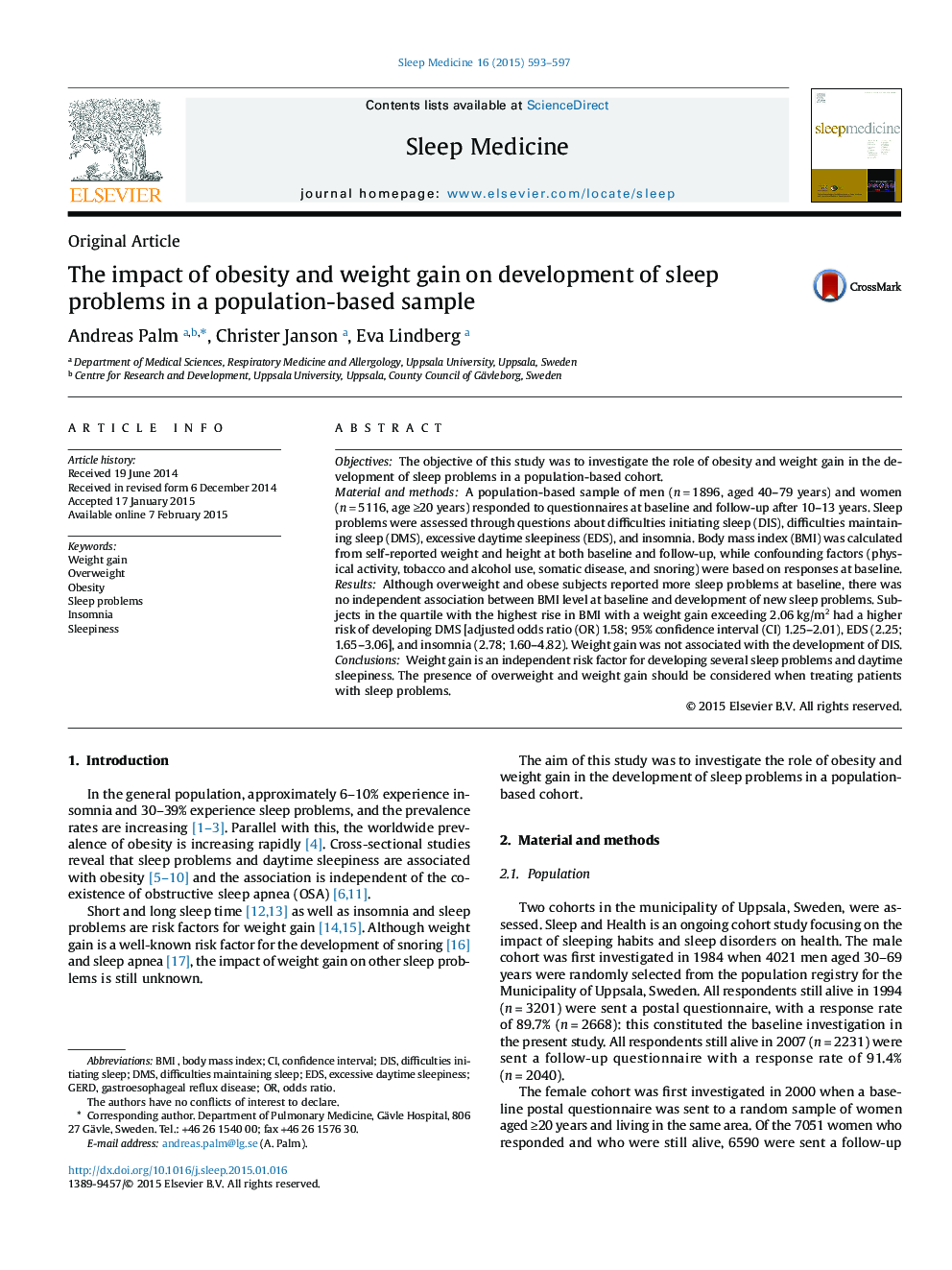| Article ID | Journal | Published Year | Pages | File Type |
|---|---|---|---|---|
| 3176042 | Sleep Medicine | 2015 | 5 Pages |
•The role of obesity and weight gain in the development of sleep problems in a population-based cohort was studied.•Overweight and obese subjects reported more sleep problems at baseline.•There was no independent association between body mass index (BMI) level at baseline and development of new sleep problems.•Weight gain was an independent risk factor for developing several sleep problems and daytime sleepiness.
ObjectivesThe objective of this study was to investigate the role of obesity and weight gain in the development of sleep problems in a population-based cohort.Material and methodsA population-based sample of men (n = 1896, aged 40–79 years) and women (n = 5116, age ≥20 years) responded to questionnaires at baseline and follow-up after 10–13 years. Sleep problems were assessed through questions about difficulties initiating sleep (DIS), difficulties maintaining sleep (DMS), excessive daytime sleepiness (EDS), and insomnia. Body mass index (BMI) was calculated from self-reported weight and height at both baseline and follow-up, while confounding factors (physical activity, tobacco and alcohol use, somatic disease, and snoring) were based on responses at baseline.ResultsAlthough overweight and obese subjects reported more sleep problems at baseline, there was no independent association between BMI level at baseline and development of new sleep problems. Subjects in the quartile with the highest rise in BMI with a weight gain exceeding 2.06 kg/m2 had a higher risk of developing DMS [adjusted odds ratio (OR) 1.58; 95% confidence interval (CI) 1.25–2.01), EDS (2.25; 1.65–3.06], and insomnia (2.78; 1.60–4.82). Weight gain was not associated with the development of DIS.ConclusionsWeight gain is an independent risk factor for developing several sleep problems and daytime sleepiness. The presence of overweight and weight gain should be considered when treating patients with sleep problems.
